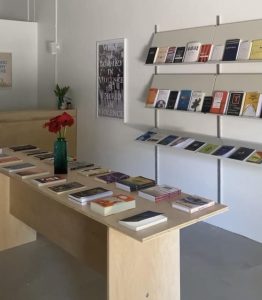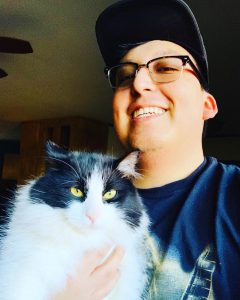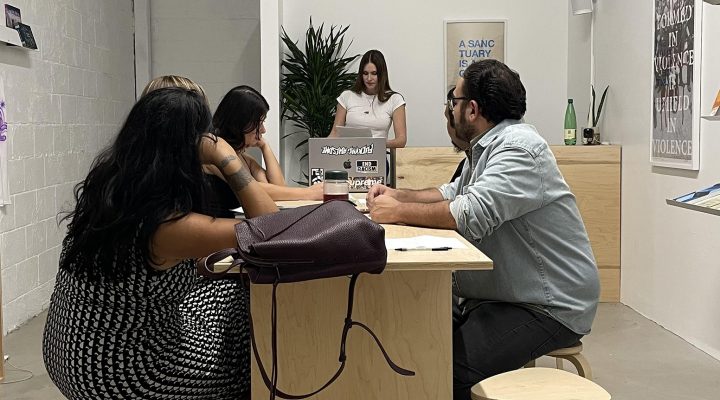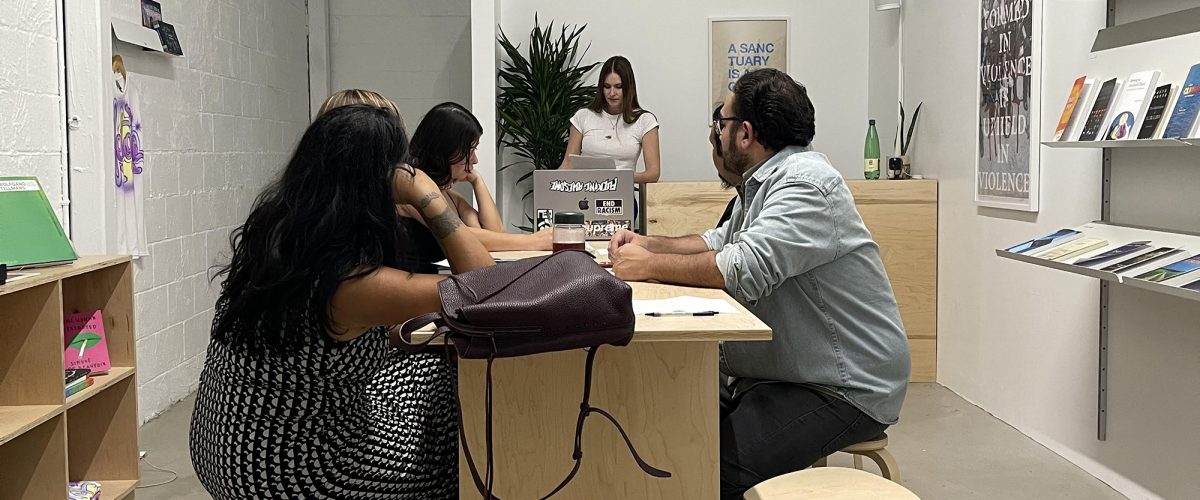Jillian Mason Shannon has had such great experiences in church that she wanted to pass her love of community and theology along to those who have been estranged from Christianity but remain intellectually and spiritually curious.
“I have only had good experiences with church. I know I am the rare exception,” said Shannon, daughter of George Mason, senior pastor emeritus at Wilshire Baptist Church in Dallas, and current member of Woodland Baptist Church in San Antonio, Texas.
So, in the fall she opened Neotopia Books, a postmodern theological space in San Antonio, with an eclectic offering of works on theology, philosophy, ethics, mysticism and culture along with provocative hybrid courses like her November class on “Disturbing Biblical Stories.”

Jillian Mason Shannon
She admits the store and the community of seekers it has attracted feels a lot like leading her own congregation.
“I want other people to have good experiences, and this is me creating my ideal contemporary church space,” she said. “I want to make theology cool.”
That calling derived from a lifelong passion for theology deepened by earning a master’s degree in theology from Perkins School of Theology at Southern Methodist University.
That academic program widened her grasp of theology in part by exposing her to disciplines such as literature, philosophy, science and history. But she initially had no plan for how to use the degree upon graduation in 2023.
“I just knew I had been into theology as a hobby forever,” she said. “I like to read this stuff and it’s my favorite conversation topic. I still very much want to learn everything I can about it.”
But an idea began to emerge from the multiple responses Shannon was getting on the @_neotopia Instagram account she had set up in 2022. “I was just posting things I was learning that blew my mind, and it was generating a lot of response, and thought I need to get this out to more people.”
One topic that generated a lot of interest among “rebellious people in philosophy and theology” was that of God and human suffering, she explained. “People really took to it and I realized I was meeting a need out there of deconstructing these preconditioned ways we have been taught to think about God.”

Books shelves at Neotopia
With space available next to her husband’s vintage clothing shop in the hip Beacon Hill neighborhood of San Antonio, she opened the store in September as a community place dedicated to discourse and classes. “The books are kind of an excuse to have the space,” she quipped.
The bookstore is designed to be a sanctuary for seekers and skeptics of any or no religion who want to challenge and discuss the kinds of theological questions unwelcome in many religious communities. Those opportunities are available through classes and film screenings, book clubs, and from video book and author reviews Shannon posts on Instagram.
“The type of person I want to attract doesn’t necessarily have a church community but is looking to feed their soul and open their minds and address a hunger that church isn’t meeting for them,” she said.
One of the popular theological assumptions challenged at Neotopia Books is that “everything happens for a reason” and that “God has a plan” behind tragedy and suffering.
“That can be comforting in the moment, but if you really investigate it, it’s a pretty problematic way of thinking of God,” she noted. “So, let’s look at how we think about God and how it affects everything in our lives.”
The shop is a space where postmodern philosophy, Scripture, theology, science and culture intersect, she said. “Neotopia’s theology is taking a new angle and a new perspective on all these things.”

Hector Camposano
Shannon’s approach to the study of theology was a big draw for Hector Camposano, a 26-year-old former Christian who rejects an “atheist” designation as too limited: “You can say I am a curious seeker.”
Camposano attended the Neotopia “Disturbing Bible Stories” class after learning of the store and its mission on Instagram. “I thought it looked like something really cool, really exciting,” he said. “It looked like it would be an open-minded study of Christian theology and atheists and seekers were welcome to attend.”
Camposano said he was both surprised and inspired by Shannon’s discussion about whether Abraham failed his test by preparing to kill his son, Isaac, as God commanded him to do.
“Her approach was to say that God doesn’t like children being killed and that God was testing Abraham not for obedience, but to take a stand and say, ‘I am not going to do that,’” he recalled. “She also connected it to modern times by showing how people use the Bible to be ugly with one another, to be racist and to justify violence.”
The fact is Abraham “failed miserably,” Shannon said. “After that moment, God never spoke to him again. The test was about righteous discernment between blind obedience and being able to discern for ourselves what the righteous thing to do is.”
Exploring those concepts is part of the deconstructing of pre-conceived notions of God, Scripture and church at Neotopia Books.
“In philosophy, postmodern means questioning everything,” Shannon said. “And that is what we are doing here.”
But there is a bigger purpose behind the questioning, she added. “You challenge authority, but not just for sake of deconstructing, but for reconstructing our beliefs in a way that is life affirming.”


